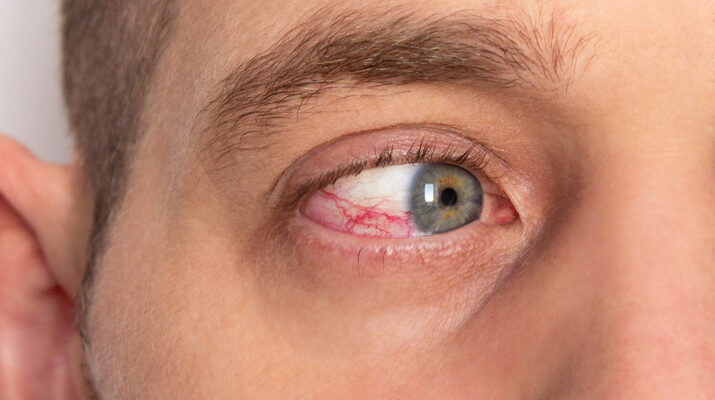Look for these signs to know if you’re in the midst of an emergency
By Deborah Jeanne Sergeant
About 2.5 million eye injuries happen in the US., according to the American Academy of Ophthalmology,
Not all of these injuries constitute eye emergencies. However, for those that are emergencies, not seeking care is more likely to result in vision loss.
It’s important to know which injuries are emergencies and which aren’t. But it’s better to err on the side of caution.
Many people believe that if their vision seems unaffected, their eye injury isn’t serious.
Raja Narayanan, ophthalmologist and retina and vitreous surgeon at UR Medicine Flaum Eye Institute, explained that “any eye injury which is directly impacting the eye is an emergency, even if the patient feels that they’re able to see well after the injury. They could be having damage in the back of the eye which could be missed if it doesn’t have symptoms initially.”
Any time the eye is reddened or the vision is affected, people should seek emergency care, as with cases when the eye receives a forceful injury. Narayanan said this type of injury could have a detached retina.
Chemical injuries or abrasions are also serious injuries and should be considered “an extremely urgent condition,” Narayanan said.
“The first thing when some chemical falls into the eye, one should do a 10- to 15-minute eye wash. Don’t wait to come to the hospital as you could wait an hour or two as it’s extremely dangerous to the eye. Do a first aid emergency eye wash at home or at the workplace and then come get evaluated for any other intervention required.”
In the meantime, have someone call a healthcare provider armed with the chemical’s package label or material data safety sheet (MSDS). Labels and MSDS sheets can help healthcare providers better understand the nature of the injury and can guide them as to how best to treat the injury.
Foreign object injuries can cause significant damage to the eye.
“Even if you think there’s nothing inside the eye, it should be seen in an ER,” Narayanan said. “Any foreign object lodged in the eye should be removed. Some may be on the surface of the eye and can be removed in the office. If it’s lodged in the eye, it can be a more complex surgery.”
Even without an acute injury, anyone who experiences a sudden loss of vision, blurred vision or sudden onset of flashes, sparks of light or floaters — especially after age 50 — should seek emergency care. Patients presenting with these symptoms may be experience a serious and urgent health issue.
“I still recommend annual eye exams, especially with families with health history of cataracts, glaucoma or macular degeneration,” Narayanan said. “Especially patients with diabetes: get your eyes checked. Eye diseases can be silent diseases in their early stages. We won’t want the disease to progress to a stage where their eyesight is not recovered.”

